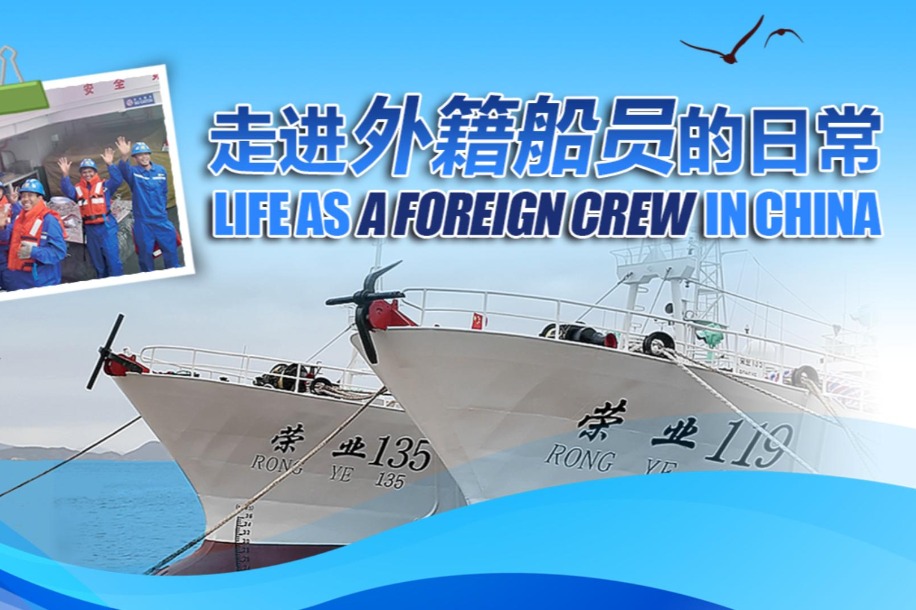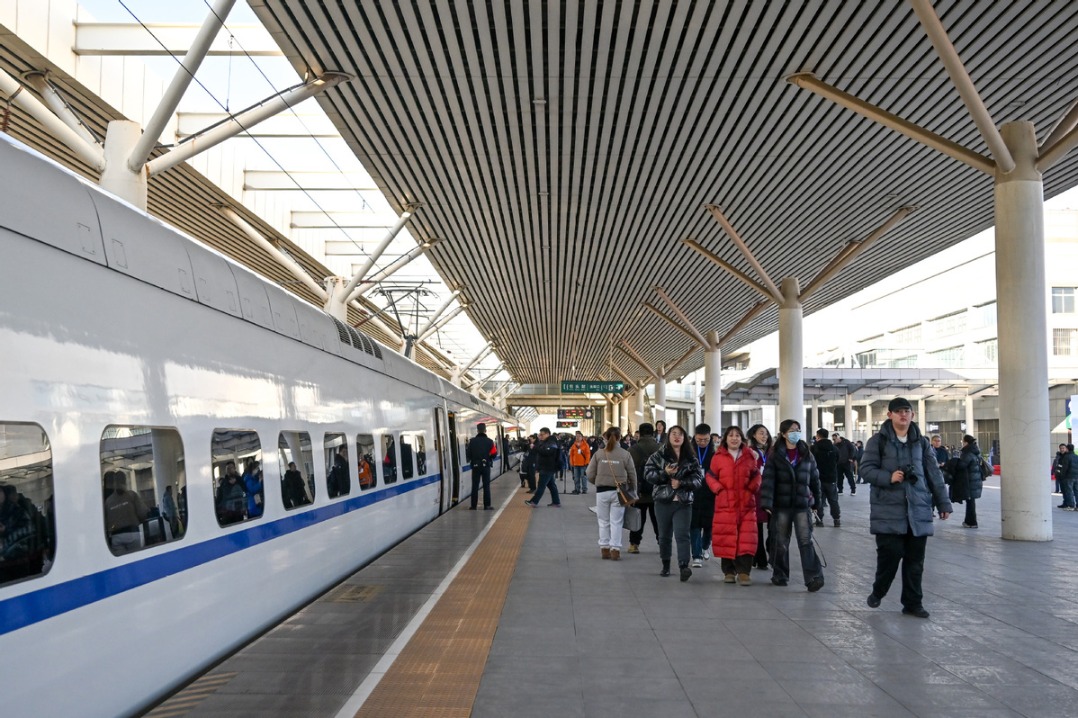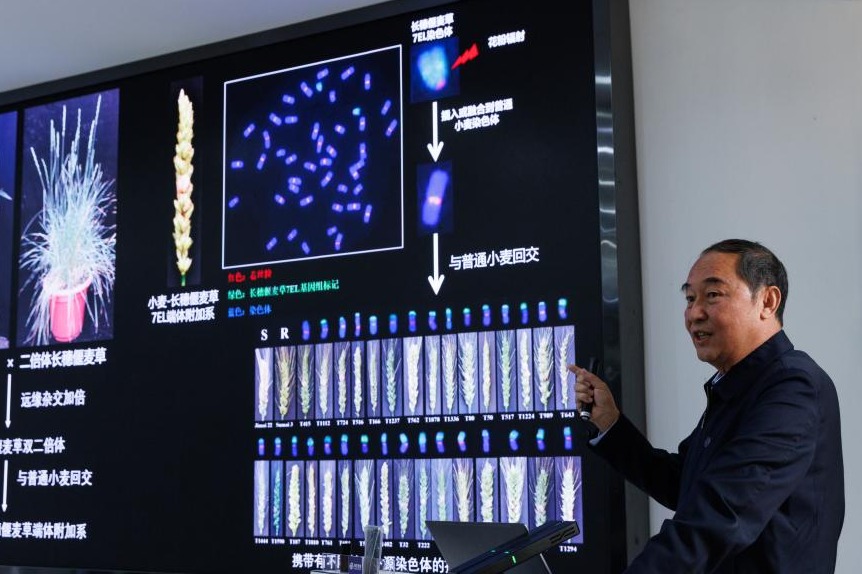Youth exchanges mooted for mutual understanding
Former Harvard school professor hails China's transformation over last 40 years

Editor's note: As the People's Republic of China celebrates the 75th anniversary of its founding this year, China Daily asked prominent international figures to reflect on their relationship with the country and to talk of the direction in which they see it going.
John Quelch's brush with China started in 1981 when he took a few hours from an Asian trip to visit the Sun Yat-sen Memorial Hall in Guangzhou, Guangdong province. Quelch, then a Harvard Business School professor, tried to send a postcard to his family in the United States, only to discover that many Chinese didn't understand what a "postcard" was.
"China was economically poor, with few cars on the road, and Chinese people were very friendly and curious to talk to us," said Quelch, recalling his initial impression of the country.
He served as a professor at the Harvard Business School for more than three decades, ending his tenure in 2017. This January, he came to Kunshan, Jiangsu province, as executive vice-chancellor of Duke Kunshan University, or DKU, keen to serve as a "bridge" linking Chinese and US education.
When he first visited China, people in the United States were beginning to take an interest in the country, largely due to former US president Richard Nixon's historic visit to China in 1972, which significantly heightened China's visibility and piqued US people's curiosity about the country. The arrival of two pandas in the US that same year further stimulated tourism in China, he noted.
Meanwhile, China's reform and opening-up policy, initiated in the late 1970s, enhanced economic ties and the relationship between the Chinese and US people, offering individuals like him more chances to engage with China in the subsequent years, he said.
Against this backdrop, the ties between Harvard Business School and China also grew stronger, and he often traveled to China to participate in discussions on economic and business matters during the 1980s and 1990s.
From 2011 to 2013, Quelch took a leave of absence from Harvard, serving as the dean of China Europe International Business School, or CEIBS, in Shanghai, to help elevate the business school founded in 1994 to a global level.
Quelch said that business and management principles are quite international, though some cultural adaptation is necessary, and government regulations vary from one country to another.
"It is quite easy to bring the Harvard Business School case study approach to the CEIBS classroom. And Chinese participants, mostly senior executives, want to engage in discussions with each other and share their experiences. They prefer professors to be more like the conductor of an orchestra, not the sole person delivering information or knowledge in a one-way fashion," he said.
Drastic changes
Like many, Quelch has been surprised by China's drastic economic changes over the past four decades. Compared to his initial visit, when poverty was apparent, the transformation in wealth creation is astonishing.
"China has achieved the most substantial and rapid transformation in human history by lifting nearly 800 million people out of poverty over the past four decades," he remarked.
In the 1980s, China was in the early stages of its reform and opening-up policy, characterized by an underdeveloped regulatory framework. Today, however, China boasts a structured, regulated and disciplined economic environment. It now has significantly more capacity in science, technology and innovation. There has also been a significant rise in Westerners seeking collaboration with Chinese business professionals, he said.
"I've always believed in lifelong learning. And that's pretty easy to do in China because there's so much to learn," he said.
Quelch also highlighted the remarkable increase in English proficiency among the Chinese population and the increase in Chinese tourists traveling worldwide. This not only brings economic benefits to the countries they visit but also allows people worldwide to meet and understand Chinese citizens, who are law-abiding and respectful visitors.
"This creates a very positive impression of China and is crucial in fostering international understanding," he said.
Quelch was born in the United Kingdom, grew up in Australia, and developed his career in the US and China while traveling extensively across many countries. At the age of six, his family relocated from the UK to Australia. That journey took two and a half days with nine stops for refueling, as jet engines were not yet in service then.
"I was very lucky," he recalled. "Without even realizing it, I traveled halfway around the world and visited nine countries when I was just six."
He said that young people should seek opportunities to travel internationally as early as possible. He highly appreciated President Xi Jinping's invitation last year for 50,000 US students to visit China in a five-year period.
"Youth always represents the future of every society, as innovation invariably stems from young minds," he said. "It is crucial for young people from China and the US to understand each other."
Over the past few years, tensions between China and the US have cast a shadow over the academic field and people-to-people exchanges. It is detrimental when national political tensions spill over into the lives of ordinary citizens, whose interactions primarily involve the exchange of ideas and knowledge, often in the pursuit of scientific discovery, he said.
While these tensions may occasionally address specific issues faced by individuals traveling between countries, they generally create unnecessary obstacles for those simply seeking to engage in cross-cultural and intellectual exchanges, he added.
Quelch believes that the key to overcoming geopolitical tensions lies not necessarily in grand gestures but in a constant flow of cultural exchanges across a wide range of fields. Every single person-to-person interaction counts.
Crisis of confidence
Quelch said that currently there is a mutual crisis of confidence between China and the US.
"China needs to be more assured of its ability to compete on the global stage with a more open economy. Conversely, the United States should trust its capacity to compete with China without resorting to unnecessary tariffs and defensive measures," he said.
"I believe that people and consumers worldwide will benefit from honest and fair competition between Chinese and American companies. Such competition will lower prices for goods and services and elevate the global standard of living."
Therefore, both countries should recognize that their responsibilities for global prosperity extend beyond merely protecting national interests, he added.
He said that maintaining international tourism and student exchanges, along with collaboration among educators and scholars across borders — free from political agendas — will significantly benefit the world. Consumers, in particular, will gain from this, as innovation will accelerate with such cross-fertilization and cultural interchange.
"Every time a Chinese tourist talks to an American on the streets of Manhattan, that's a small contribution toward harmony," he said.
With this belief in mind, Quelch launched an immersion program for US college students in August. Over 70 students from eight prestigious US universities traveled to Shanghai and Jiangsu province for a weeklong cultural exchange with their Chinese counterparts. The program, hosted by the DKU and the Foreign Affairs Office of Jiangsu Provincial People's Government, included tours of historic towns and museums, visits to tech companies, and seminars on the ethics of emerging technologies.
Having long admired and studied Chinese culture, Quelch's appreciation for its diverse teas and fascinating tea traditions led him to start collecting Chinese teapots in the 1990s. His collection includes ceramic teapots of various shapes, designs and styles, as well as metal teapots once used by people in the Chinese countryside.
As a history undergraduate major, he deeply appreciates President Xi's commitment to promoting Chinese culture and history. He lauds the efforts to improve accessibility by opening numerous additional museums, which allow more and more Chinese people to truly appreciate their rich cultural heritage.
He was particularly impressed by Jingdezhen, the porcelain capital of China located in Jiangxi province, which boasts a ceramics museum. Many individuals, including international artists, have set up workshops and long-term residences in Jingdezhen.
He said the museum functions not only as a storage place for artifacts but also as a driver for economic growth and a hub where innovation and design thrive.
"Traditional culture seamlessly merges with new technologies and designs here. Jingdezhen showcases a diverse array of works from students, young artists, renowned artists, and ceramic workers."
John Quelch
Executive Vice-Chancellor and Distinguished Professor of Social Science, Duke Kunshan University
Career:
1979-98: Professor, Harvard Business School
1998-2001: Dean and Professor, London Business School
2001-10: Professor& Senior Associate Dean, Harvard Business School
2011-13: Dean, Vice-President and Professor, China Europe International Business School
2013-17: Professor, Harvard Business School
2017-23: Dean, Vice-Provost and Professor, University of Miami
2024: Executive Vice-Chancellor, Duke Kunshan University
Books:
The Global Market (2004)
Greater Good: How Good Marketing Makes for Better Democracy (2008)
All Business Is Local (2012)
Consumers, Corporations and Public Health (2016)
Choice Matters: How Healthcare Consumers Make Decisions (2018)
Honors:
Fellow of the American Academy of Arts and Sciences
Commander of the Order of the British Empire, 2011
Silver Magnolia Award, Shanghai Municipal Government, 2012
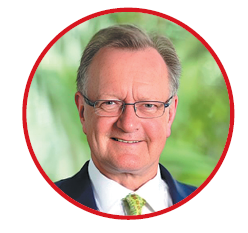

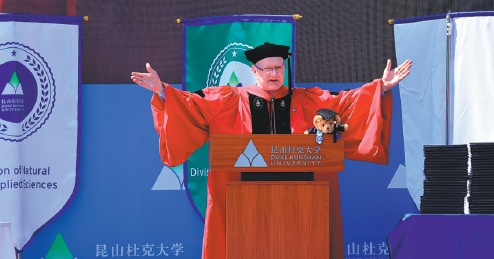
Today's Top News
- Xi urges central SOEs to contribute more to Chinese modernization
- Five continents, five rhythms in 2025
- Lawmakers review draft law to expand childcare services
- China's new-style tea brands find a hot new market in US
- Xi extends congratulations to Chilean president-elect
- Japan urged to stop provocative moves

















